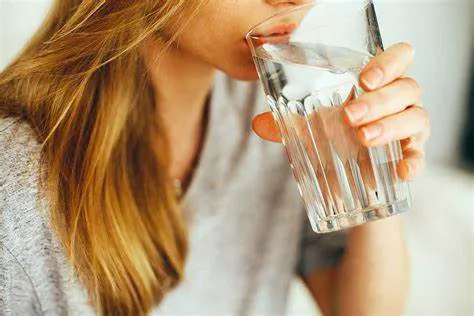Blood pressure management is a crucial aspect of maintaining overall health and well-being. Many lifestyle factors, including diet and hydration, play a role in blood pressure regulation. One common question that arises is whether increasing water intake can effectively lower blood pressure. In this comprehensive article, we will delve into the relationship between water consumption and blood pressure levels, examining the scientific evidence and providing actionable insights for optimal blood pressure management.
Understanding Blood Pressure
Before delving into the specifics of water intake and its impact on blood pressure, it’s essential to understand what blood pressure is and why its regulation is vital for health. Blood pressure refers to the force exerted by circulating blood against the walls of blood vessels. It is measured in millimeters of mercury (mmHg) and consists of two values: systolic pressure (the pressure during heartbeats) and diastolic pressure (the pressure between heartbeats).
Normal blood pressure typically falls below 120/80 mmHg. Readings above this range may indicate hypertension (high blood pressure), a condition associated with increased risk of cardiovascular diseases such as heart attack and stroke. Conversely, low blood pressure (hypotension) can also pose health risks, leading to symptoms like dizziness and fainting.
See Also: Will Running Lower My Blood Pressure?
The Role of Hydration in Blood Pressure Regulation
Hydration, or the balance of water in the body, is integral to various physiological processes, including blood pressure regulation. Adequate hydration ensures optimal blood volume, which, in turn, influences blood pressure levels. When the body is dehydrated, blood volume decreases, leading to higher blood viscosity (thickness) and potentially elevated blood pressure. Conversely, proper hydration maintains blood volume and supports efficient blood flow, contributing to healthy blood pressure levels.
Scientific Evidence on Water Intake And Blood Pressure
Numerous studies have explored the relationship between water intake and blood pressure, providing valuable insights into how hydration affects cardiovascular health. One notable study published in the Journal of Human Hypertension examined the impact of increased water consumption on blood pressure levels in individuals with hypertension. The results showed that participants who consumed more water experienced significant reductions in both systolic and diastolic blood pressure over the study period.
Furthermore, a meta-analysis published in the American Journal of Hypertension reviewed multiple studies on water intake and blood pressure regulation. The analysis concluded that higher water consumption was associated with lower blood pressure levels, particularly in individuals with hypertension. These findings underscore the importance of adequate hydration as a non-pharmacological approach to managing blood pressure.
see also: Will Lemon Juice Lower Blood Pressure?
Factors Influencing Hydration And Blood Pressure
While the link between water intake and blood pressure is evident, several factors can influence the effectiveness of hydration in blood pressure management. These factors include:
Total Fluid Intake: While water is the primary source of hydration, other fluids such as herbal teas and clear soups also contribute to overall fluid intake. Monitoring total fluid intake is essential for maintaining optimal hydration levels.
Sodium Intake: Excessive sodium consumption can lead to fluid retention and increased blood pressure. Balancing sodium intake with adequate hydration is crucial for blood pressure control.
Physical Activity: Regular exercise promotes cardiovascular health and can contribute to lower blood pressure levels.
Hydrating adequately before, during, and after exercise is essential for optimal performance and blood pressure regulation.
Medical Conditions: Certain medical conditions, such as kidney disease and diabetes, can affect fluid balance and blood pressure regulation. Individuals with these conditions should consult healthcare professionals for personalized hydration recommendations.
Practical Tips for Hydration And Blood Pressure Management
Incorporating healthy hydration habits into daily life can support optimal blood pressure management. Here are some practical tips:
Drink Water Regularly: Aim to drink at least eight glasses of water per day, spread throughout the day, to maintain hydration.
Limit Sugary Beverages: Reduce consumption of sugary drinks, as they can contribute to weight gain and potentially elevate blood pressure.
Monitor Sodium Intake: Read food labels and choose low-sodium options to help control blood pressure.
Stay Active: Engage in regular physical activity to promote cardiovascular health and support blood pressure regulation.
Consult Healthcare Providers: Individuals with existing medical conditions or concerns about blood pressure should seek guidance from healthcare professionals for personalized recommendations.
Conclusion
In conclusion, adequate hydration plays a crucial role in blood pressure regulation. Increasing water intake, along with adopting a healthy lifestyle that includes balanced nutrition and regular exercise, can contribute to maintaining healthy blood pressure levels. While drinking more water alone may not be a sole solution for managing hypertension, it is a fundamental component of a comprehensive approach to cardiovascular health. By prioritizing hydration and adopting healthy habits, individuals can take proactive steps toward optimal blood pressure management and overall well-being.

